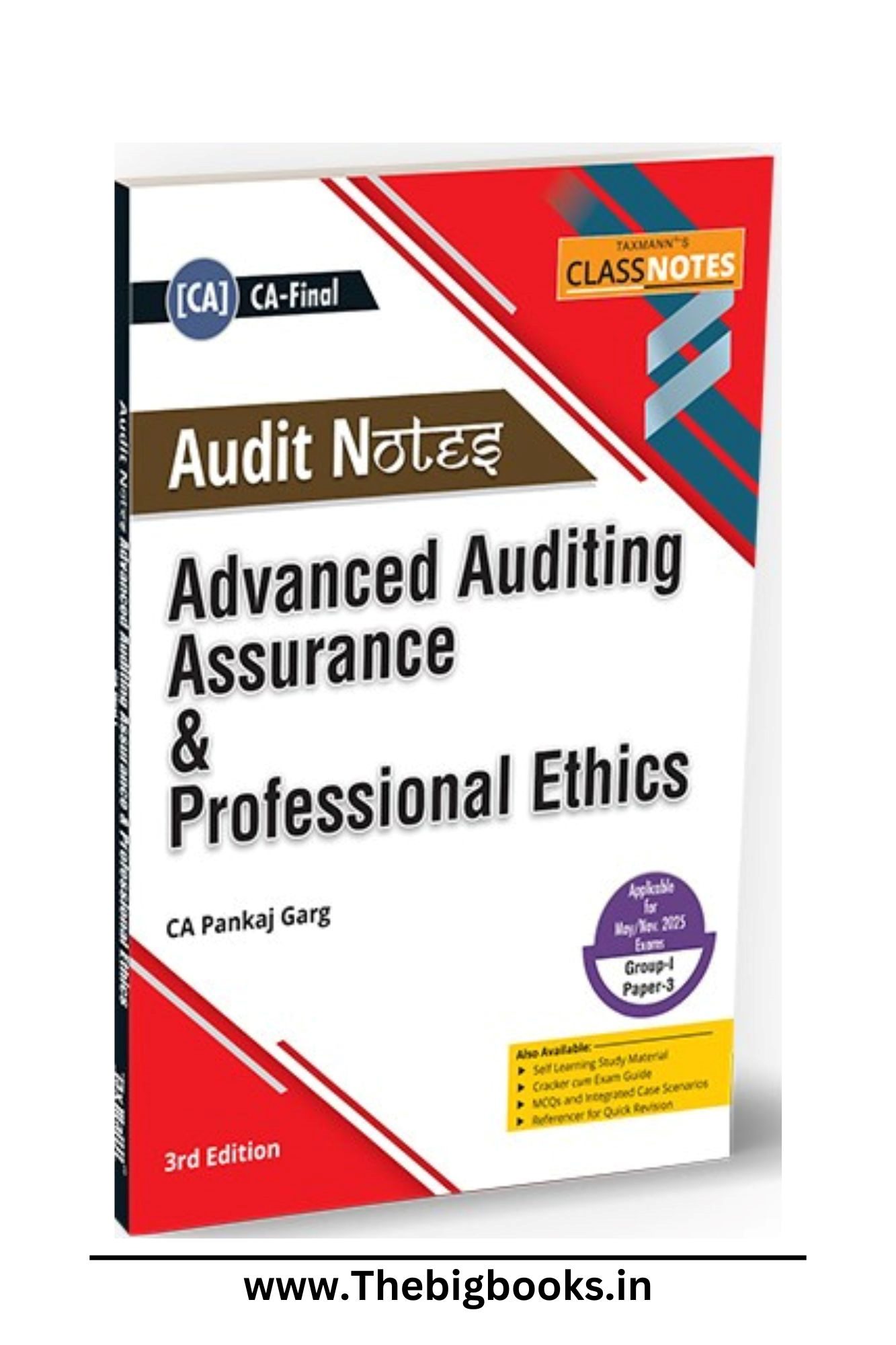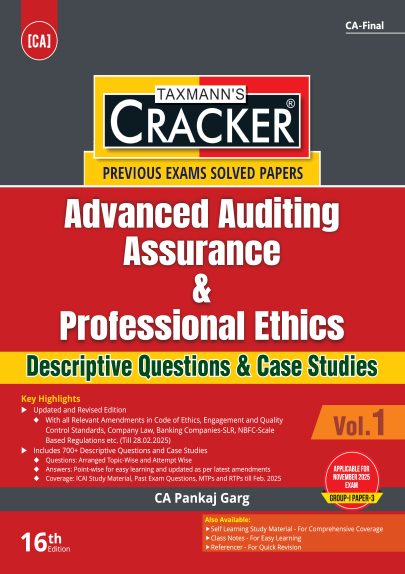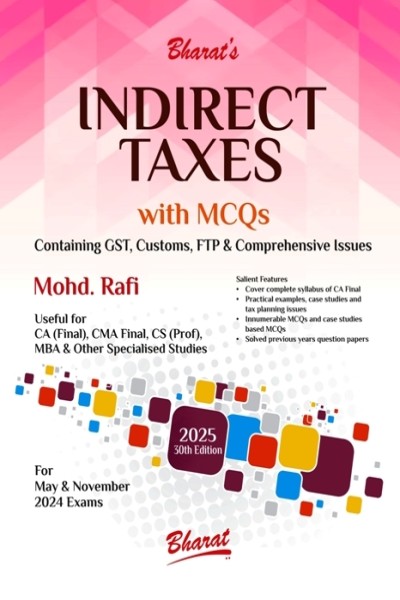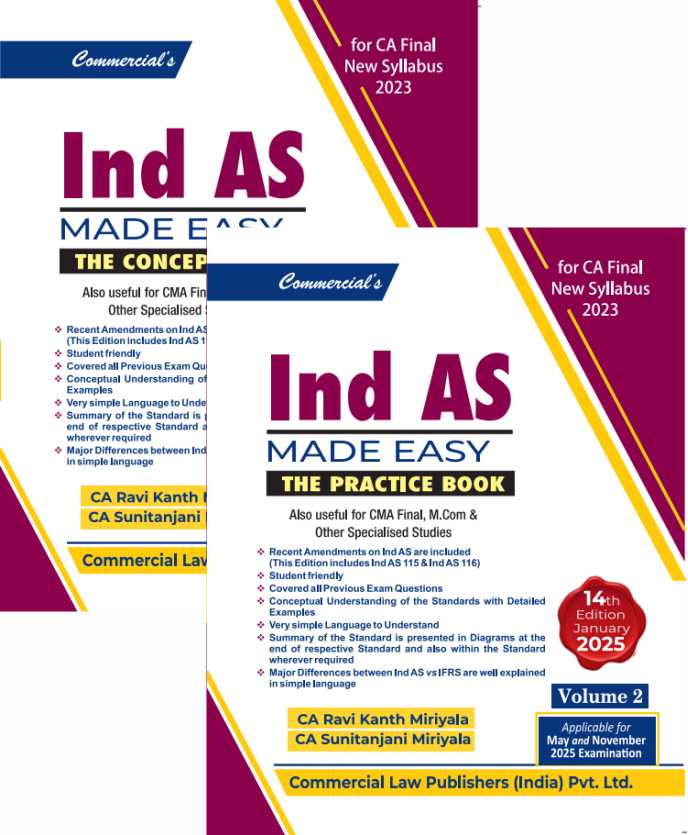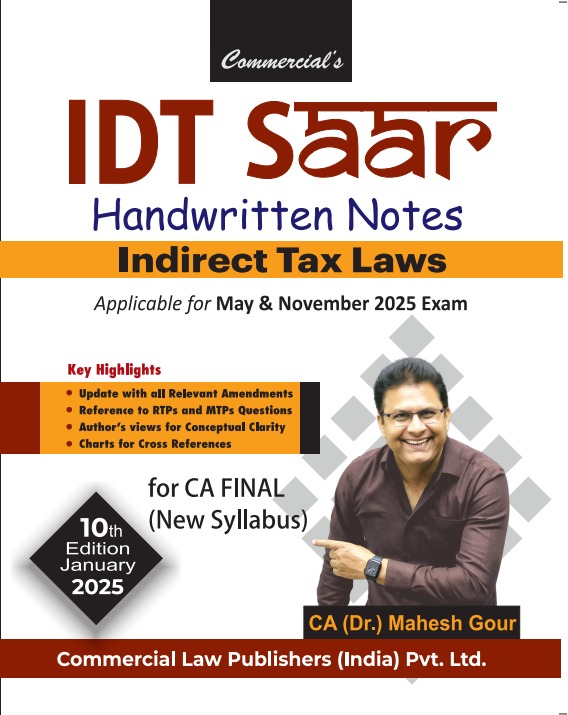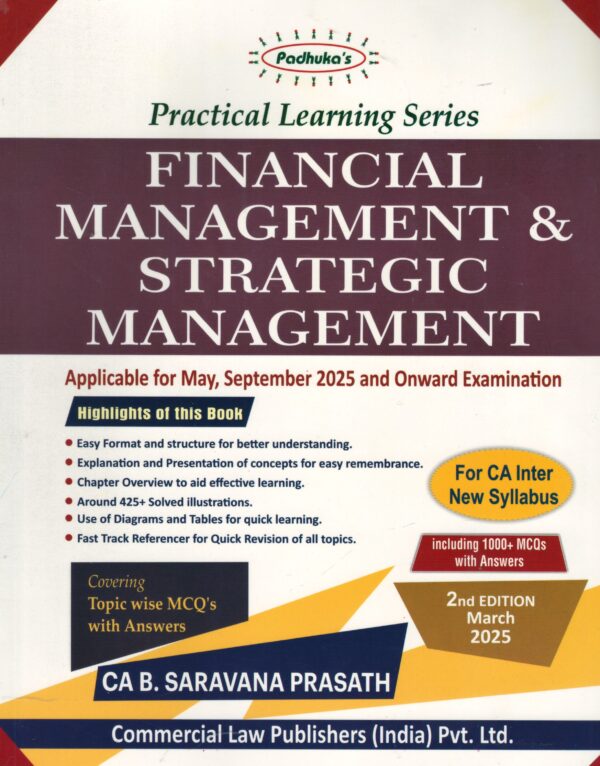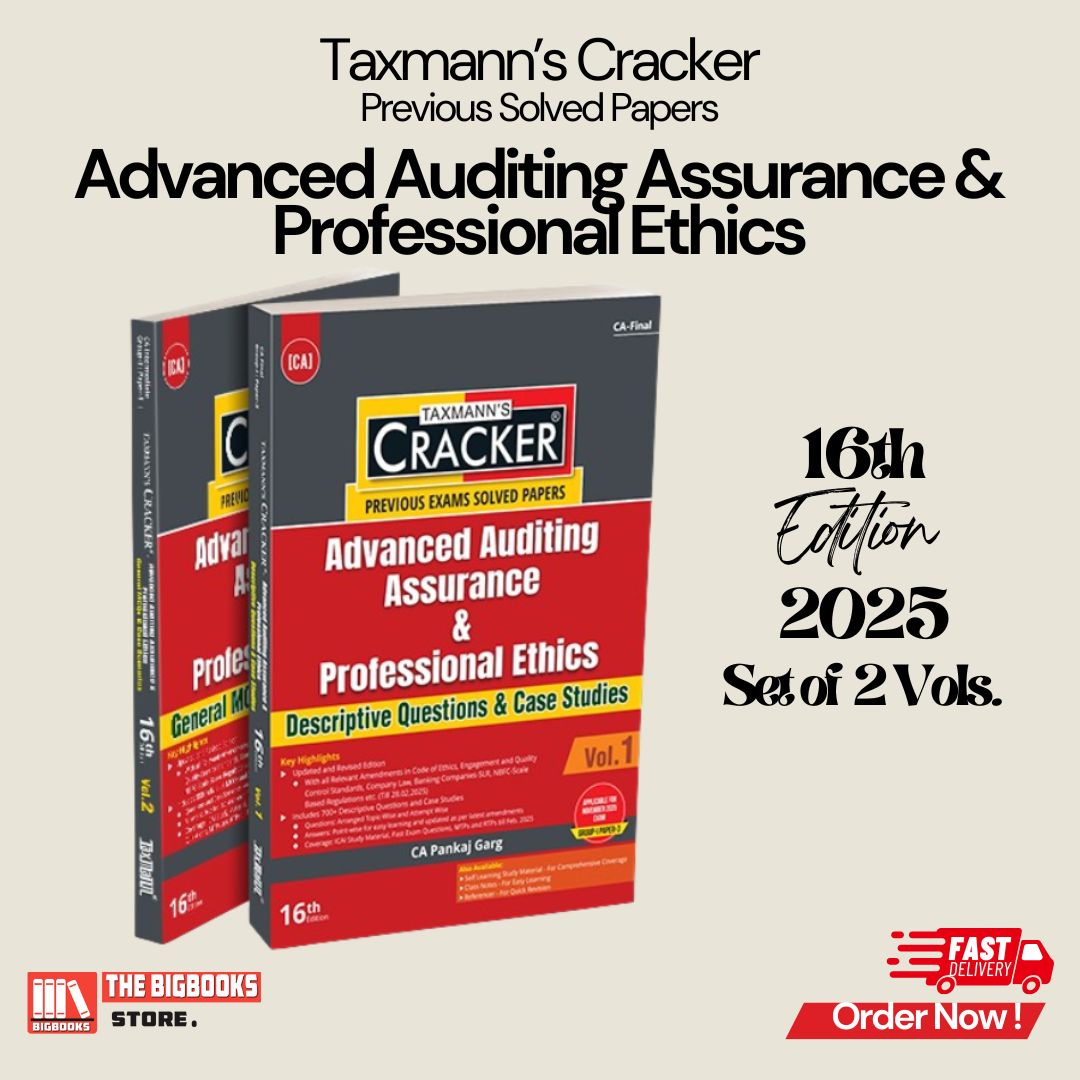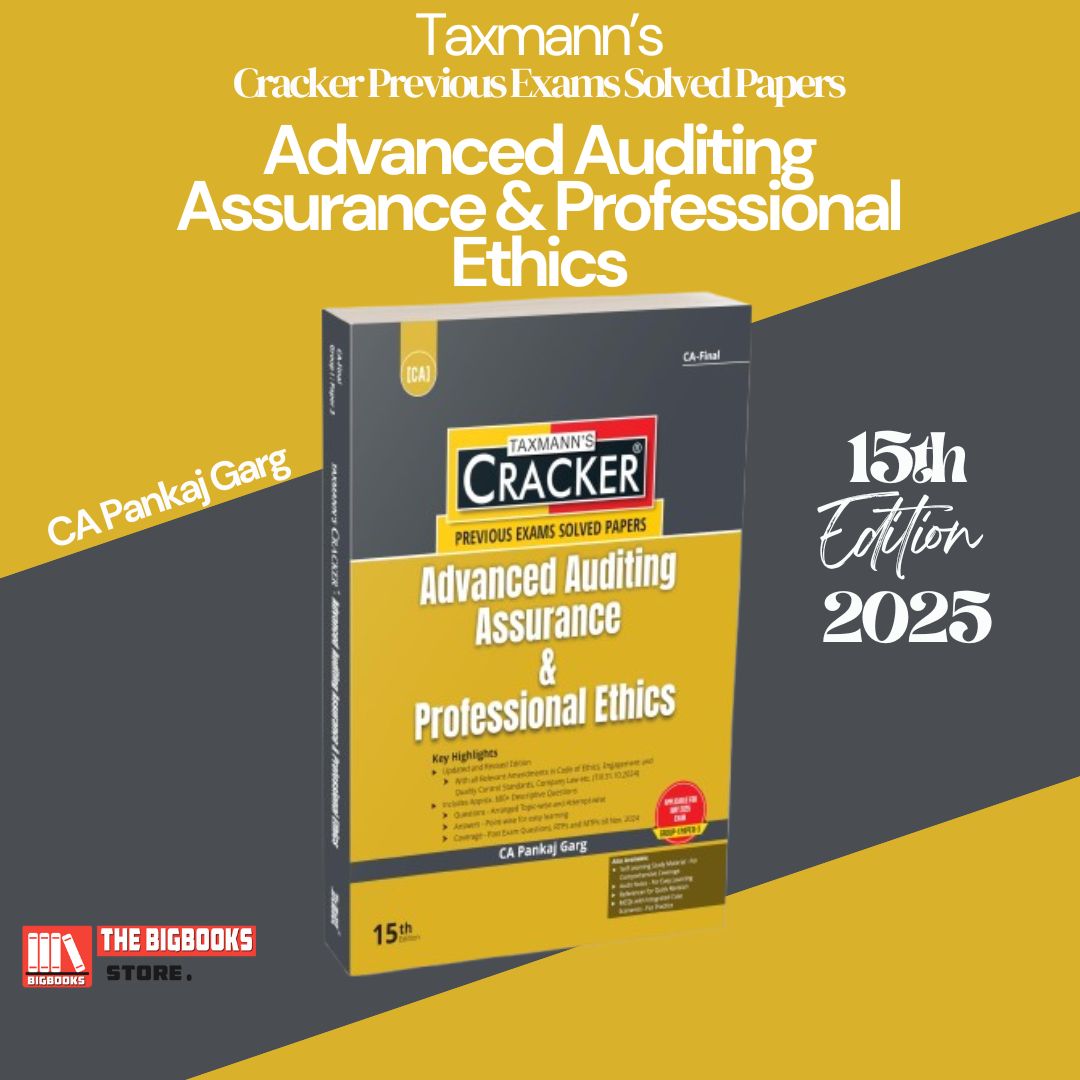TAXMANN`S (AUDIT NOTES) ADVANCED AUDITING ASSURANCE & PROFESSIONAL ETHICS. (CLASS NOTES) APPLICABLE FOR MAY/ NOV. 2025 EXAMS GROUP-1 PAPER-3.
| Author : | CA PANKAJ GARG |
|---|
TAXMANN`S (AUDIT NOTES) ADVANCED AUDITING ASSURANCE & PROFESSIONAL ETHICS. (CLASS NOTES) APPLICABLE FOR MAY/ NOV. 2025 EXAMS GROUP-1 PAPER-3.
Share this product
Advanced Auditing & Assurance
-
Audit Types:
- Internal Audit: Focuses on evaluating the effectiveness of internal controls and risk management.
- External Audit: Conducted by independent auditors to provide an opinion on financial statements.
- Forensic Audit: Investigates potential fraud or financial misconduct.
-
Audit Evidence:
- Types: Physical inspection, observation, confirmation, recalculation, analytical procedures.
- Reliability: Depends on the source (internal vs. external) and nature of evidence.
-
Risk Assessment:
- Inherent Risk: The susceptibility of an account balance to misstatement before considering internal controls.
- Control Risk: The risk that a misstatement could occur and not be prevented or detected by internal controls.
- Detection Risk: The risk that the auditor’s procedures will not detect a misstatement.
-
Materiality:
- Defined as the threshold above which missing or incorrect information could influence the economic decisions of users.
-
Sampling Techniques:
- Statistical Sampling: Uses probability theory to evaluate risk and make inferences.
- Non-statistical Sampling: Relies on the auditor’s judgment rather than statistical techniques.
Professional Ethics
-
Fundamental Principles:
- Integrity: Being straightforward and honest in professional and business relationships.
- Objectivity: Avoiding bias and conflicts of interest.
- Professional Competence: Maintaining knowledge and skill at a level required to ensure competent service.
- Confidentiality: Respecting the confidentiality of information acquired during the course of professional work.
- Professional Behavior: Complying with relevant laws and regulations.
-
Code of Ethics:
- Established by professional bodies (e.g., AICPA, ICAEW) to guide auditors in their ethical responsibilities.
-
Independence:
- Auditors must remain independent in both appearance and fact to maintain trust in the audit process.
-
Quality Control:
- Firms should have quality control policies and procedures to ensure compliance with ethical standards and auditing practices.

